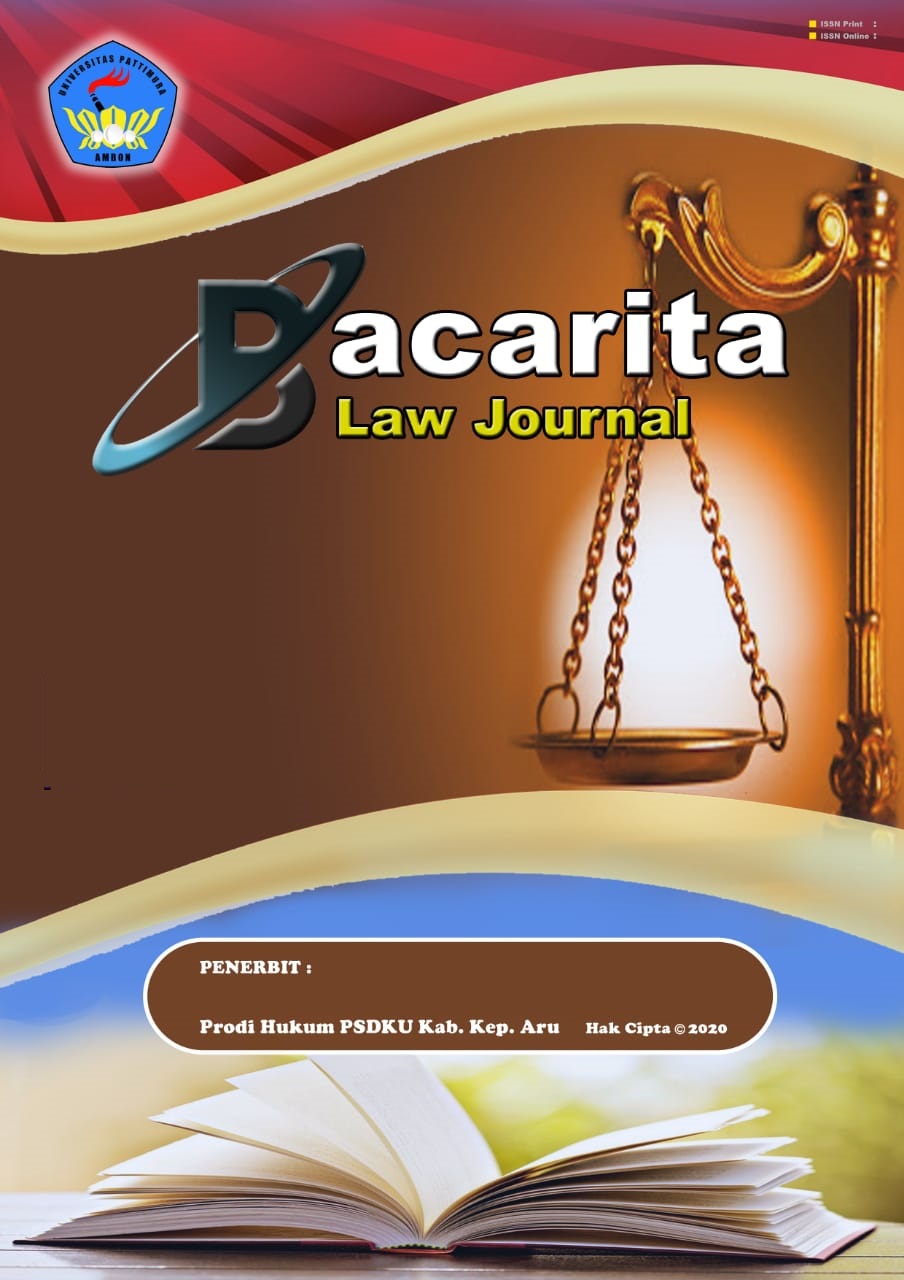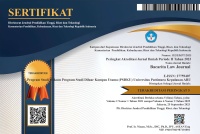Keamanan Produk Pangan Yang Dijual Melalui Media Sosial Dalam Perspektif Perlindungan Konsumen
Abstract
People who consume unsafe food products can endanger their health and even their lives. However, the fact is that until now these unsafe food products are still a problem that must be faced by the state. This becomes even more difficult when many food products can be found easily through social media. So that business actors can promote and market food products without a permit so that it has the potential to harm consumers. The research method used in this research is normative juridical or known as legal research which is carried out by studying and analyzing the substance of laws and regulations on the subject matter or legal issues in consistency with existing legal principles. The government can supervise or cooperate with social media managers to identify food products that do not have a permit. Repressive protection can be provided by the government by providing strict sanctions for business actors who produce food products without certification. Sanctions for business actors who ignore consumer rights include criminal sanctions and fines as well as revocation of business licenses. Thus, legal protection for consumers who consume food products distributed through social media can be more effective so that consumers are not harmed.
Downloads
References
Amiruddin & Zainal Asikin. Pengantar Metode Penelitian Hukum. Jakarta: Raja Grafindo Perkasa, 2012.
Fitri Haryanti Harsono. “Ada 16.700 Tautan Produk Pangan Tanpa Izin Edar via Online, BPOM: Nilainya Rp47,9 Miliar.” Https://Www.Liputan6.Com/, 2023. https://www.liputan6.com/health/read/5264448/ada-16700-tautan-produk-pangan-tanpa-izin-edar-via-online-bpom-nilainya-rp479-miliar.
Harjono. Konstitusi Sebagai Rumah Bangsa. Sekretariat Jenderal dan Kepaniteraan Mahkamah Konstitusi, 2008.
Indraswari, Debora Laksmi. “Menakar Kerugian Ekonomi Akibat KLB Keracunan Pangan Di Indonesia.” Www.Kompas.Id, 2023. https://www.kompas.id/baca/humaniora/2023/02/25/menakar-kerugian-ekonomi-akibat-klb-keracunan-pangan-di-indonesia.
Janus Sidalabok. Hukum Perlindungan Konsumen Di Indonesia. Medan: Citra Aditya Bakti, 2014.
Lestari, Tri. “Keamanan Pangan Sebagai Salah Satu Upaya Perlindungan Hak Masyarakat Sebagai Konsumen.” Aspirasi: Jurnal Masalah-masalah Sosial [Online] 11, no. 1 (2020).
Luhulima, Yusran Baginda, Josina Augustina Yvonne Wattimena, and Johanis Steny Franco Peilouw. 2023. “Konsep Pemenuhan Hak Atas Pangan Bagi Masyarakat Di Wilayah Perbatasan Pada Masa Pandemi Covid-19”. PATTIMURA Legal Journal 2 (1), 1-12. https://doi.org/10.47268/pela.v2i1.7560
Pesulima, Theresia Louize, Jenny Kristiana Matuankotta, and Sarah Selfina Kuahaty. Sasi 27, no. 28 (2021): 160–171.
Philipus.M. Hadjon. “Perlindungan Hukum Bagi Rakyat Indonesia.” Surabaya: Bina Ilmu, 1988.
Salim HS & Nurbani ES. Penerapan Teori Hukum Pada Penelitian Tesis Dan Disertasi. Jakarta: Raja Grafindo Persada, 2012.
Satjipto Rahardjo. Ilmu Hukum. Bandung: Citra Aditya Bakti, 2014.
Shidarta. Hukum Perlindungan Konsumen Indonesia. Jakarta: Grasindo, 2006.
Copyright (c) 2023 Theresia Louize Pesulima, Ronald Fadly Sopamena

This work is licensed under a Creative Commons Attribution-NonCommercial 4.0 International License.
Authors who publish their manuscripts in this Journal agree to the following conditions:
- The copyright in each article belongs to the author, as well as the right to patent.
- Authors are able to enter into separate, additional contractual arrangements for the non-exclusive distribution of the journal's published version of the work (e.g., post it to an institutional repository or publish it in a book), with an acknowledgment of its initial publication in this journal.
- Authors are permitted and encouraged to post their work online (e.g., in institutional repositories or on their website) prior to and during the submission process, as it can lead to productive exchanges, as well as earlier and greater citation of published work.
- Authors have the right to self-archiving of the article (Author Self-Archiving Policy)















